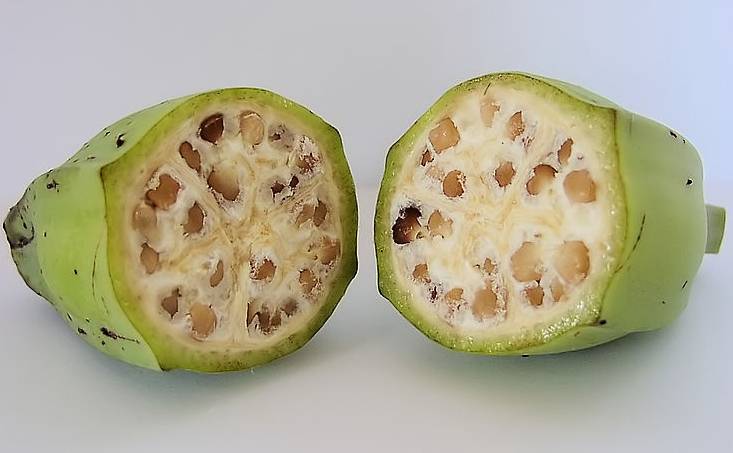I saw a shirt on Threadless the other day, designed by Philip Tseng, that made me chuckle. It shows a banana doctor telling some watermelons that their baby is seedless. The humor in this shirt is so nerdy that I thought I’d try to explain why I found it hilarious.
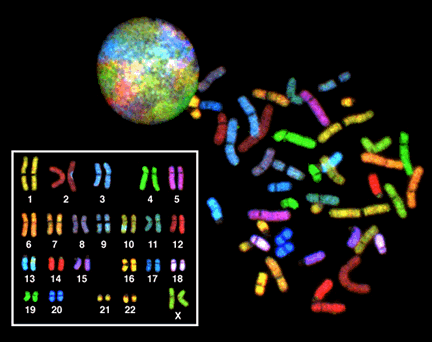 All living things have DNA. That DNA makes up chromosomes and different organisms that have varying numbers of chromosomes. Most people know about chromosomes because of human disorders like Down syndrome. Humans have 22 pairs of chromosomes, in addition to the X and Y chromosomes, that determine what genitalia you’ll have, for a grand total of 23. Cats have nineteen pairs; pea plants only have seven pairs. If someone has Down syndrome, then he or she has three copies of chromosome 21 (chromosomes are numbered by size), and this third copy causes some developmental issues. Mammals have a hard time dealing with changes in the number of copies of chromosomes. Plants however deal with additional chromosomes really well.
All living things have DNA. That DNA makes up chromosomes and different organisms that have varying numbers of chromosomes. Most people know about chromosomes because of human disorders like Down syndrome. Humans have 22 pairs of chromosomes, in addition to the X and Y chromosomes, that determine what genitalia you’ll have, for a grand total of 23. Cats have nineteen pairs; pea plants only have seven pairs. If someone has Down syndrome, then he or she has three copies of chromosome 21 (chromosomes are numbered by size), and this third copy causes some developmental issues. Mammals have a hard time dealing with changes in the number of copies of chromosomes. Plants however deal with additional chromosomes really well.
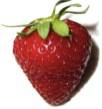
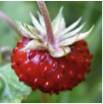
The strawberry above is a wild type, and the one to its right has the extra chromosome containing, cultivated variety.
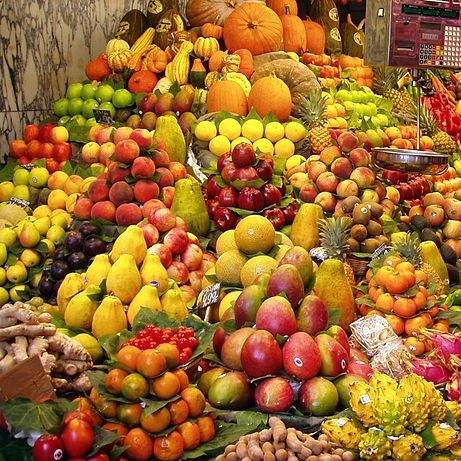 Many agriculturally important plants like wheat, grape, banana, and watermelon have more than two copies of their chromosomes. Plants that produce delicious, commercial fruits are bred to have changes in the number of copies. For example, bananas, grapes, and watermelons are seedless because they are hybrids, a cross of two different species, with an odd number of chromosomes. Most grapes found in the store are triploid — meaning that they have three copies of their chromosomes. This makes the fruit sterile, and in addition makes the cells larger. Strawberries are octopolid, they have eight copies of their chromosomes, and this makes the fruiting body really large and tasty! By making odd crosses we get larger fruit with no seeds to eat around, but the plant doesn’t get to sexually reproduce. Agriculturists clone the plants instead. These delicious, fruity treats become the mules of the plant world.
Many agriculturally important plants like wheat, grape, banana, and watermelon have more than two copies of their chromosomes. Plants that produce delicious, commercial fruits are bred to have changes in the number of copies. For example, bananas, grapes, and watermelons are seedless because they are hybrids, a cross of two different species, with an odd number of chromosomes. Most grapes found in the store are triploid — meaning that they have three copies of their chromosomes. This makes the fruit sterile, and in addition makes the cells larger. Strawberries are octopolid, they have eight copies of their chromosomes, and this makes the fruiting body really large and tasty! By making odd crosses we get larger fruit with no seeds to eat around, but the plant doesn’t get to sexually reproduce. Agriculturists clone the plants instead. These delicious, fruity treats become the mules of the plant world.
So, the next time you are picking through cartons of strawberries, think about the extra DNA you’ll be consuming from the hybrid cultivar!








